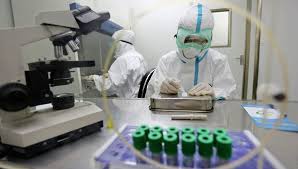L
LequteMan
Guest
The first human trial of an Ebola vaccine has so far produced no adverse effects, according to Anthony Fauci, director of the NIH's Institute of Allergy and Infectious Diseases when he testified before Congress on the Ebola virus epidemic in West Africa on Tuesday.
"So far 10 of the 20 volunteers have been vaccinated, and thus far there have been no red flags," Fauci said.
The Phase I trial is being conducted at an NIH facility in Bethesda, Md. This process is just the first phase of a multi-step evaluation intended to show that the virus is safe, and that it works in humans. Facui said that this first phase of clinical trials for the vaccine is expected to finish by the end of November or early December. After that, they will launch expanded trials to further prove that the vaccine is safe.
The vaccine, developed by GlaxoSmithKline, is based on a chimpanzee cold virus, chimp adenovirus type 3, which is being used as a carrier of pieces of genetic material of two Ebola strains: Sudan and Zaire; the latter is currently causing the massive epidemic in West Africa. The Ebola genetic material in the virus is not able to replicate and poses no harm to the people who receive it, WASHINGTON POST says.
#Ebola #WashingtonPost #Vaccine #EbolaVaccine #GlaxoSmithKline

"So far 10 of the 20 volunteers have been vaccinated, and thus far there have been no red flags," Fauci said.
The Phase I trial is being conducted at an NIH facility in Bethesda, Md. This process is just the first phase of a multi-step evaluation intended to show that the virus is safe, and that it works in humans. Facui said that this first phase of clinical trials for the vaccine is expected to finish by the end of November or early December. After that, they will launch expanded trials to further prove that the vaccine is safe.
The vaccine, developed by GlaxoSmithKline, is based on a chimpanzee cold virus, chimp adenovirus type 3, which is being used as a carrier of pieces of genetic material of two Ebola strains: Sudan and Zaire; the latter is currently causing the massive epidemic in West Africa. The Ebola genetic material in the virus is not able to replicate and poses no harm to the people who receive it, WASHINGTON POST says.
#Ebola #WashingtonPost #Vaccine #EbolaVaccine #GlaxoSmithKline


